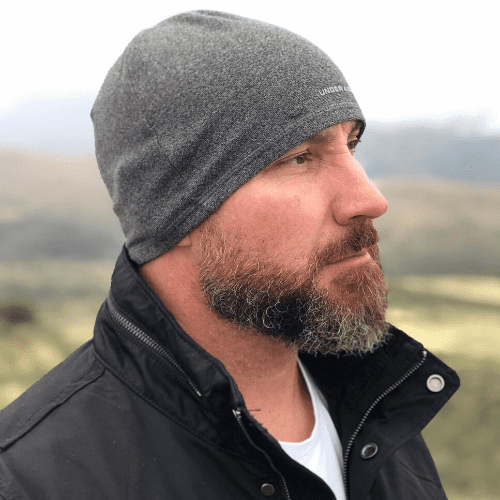Watch Cornerstone’s CEO Estil Wallace
discuss the pandemic with a reporter from Vice.
Elwood Porter II:
There’s a couple different industries that’s pandemic proof and drugs is one of them. That’s never going to stop.
Estil Wallace:
The numbers of overdose and death are astronomical. We’re going to look back on 2020, we as a society and see a lot of mistakes we made. Isolating people with mental health and addiction issues, and that’s not a small number of people. Addiction represents 15 to 20% of Americans.
Kansas Cafferty:
When this is over, you’re going to find bodies in apartments alone.
Narrator:
It’s been months since COVID 19 brought the US to a standstill, upending the lives of millions of Americans. And while States around the nation grapple with how to return to a new normal, many people have started to notice the indirect effects that COVID has had on millions of people struggling with substance abuse around the US. A deadly impact that experts worry will persist long after the pandemic is over.
Lee Adams:
Let me know when we’re set. Good to go? Cool. Tell me a little bit about the impacts that you have seen over the last few months of the coronavirus pandemic on folks who are struggling with substance abuse and folks who are seeking recovery.
Kansas Cafferty:
We’re in the middle of an epidemic that’s been forgotten. We are rising. So when we look at opioid overdoses, they’re going up. When we’re looking at treatment access, it’s going down. We have lots and lots of folks that were actually in a stable recovery or one of the highest groups are readmissions that we’re seeing right now. Folks that were clean and sober for one to two years that have lost complete touch with their support groups they’ve lost. And this is an illness that thrives on isolation.
Speaker 5:
Now addicts and alcoholics need this face-to-face interaction. Some of them rely on it for their sobriety and they are not taking this quarantine lightly.
Lee Adams:
I’d like to kind of go back to early March with you and hear a little bit about when the stay-at-home orders were being rolled out across the country, what sorts of things were you most concerned about and have any of those worst case scenarios transpired?
Kansas Cafferty:
So industry-wide, some of our immediate concerns had to do with access to treatment and whatnot.
Estil Wallace:
You’ll see a huge trend starting in March in overdose and death just climbs, climbs, climbs, climbs. It’s massive. So the isolation, more people buying alcohol, more people buying drugs, more people committing suicide, more people just spending time by themselves. I don’t know if you can hear that in the background, there’s people laughing, right? There’s people telling jokes here in our clinic. There’s people connecting. That’s what keeps us accountable, it keeps us in the light.
Narrator:
At Prevention Point, a syringe exchange in Kensington, Philadelphia, a neighborhood is facing its own opioid crisis. And the effects of COVID have touched the roots of this community when it comes to caring for a high homeless population.
Kerri Hartnett:
Something to eat? So we kind of had to shut down normal operations and move everything to the streets. So what we’re doing outside this morning is serving breakfast. This is how we do breakfast every morning just like from the door we’re handing people a sandwich and coffee. Community is really important for people and in some ways we’ve lost that a little bit because people can’t be proximate. It’s literally dangerous to be close to one another. And also for the folks that we serve, it’s safest for them to be close to one another.
Kerri Hartnett:
The drop-in center predominantly sees folks who are experiencing homelessness and coming in to access one of our services. So people can come inside, hang out, watch TV, get food, get coffee. And then they sign in for services at the front desk. Obviously, all of our services have been really affected by COVID. This room normally at this time would be full of people. But as you can see, there’s only chairs for nine to 10 people in here right now. Whereas, normally the chairs would be like this close together. And there would be like five rows of chairs and the room would be pretty packed already this early in the morning.
Kerri Hartnett:
And it was like a really warm, welcoming, inviting space and now has to be kind of spread out and it feels empty and definitely very, very different. I think it’s just that constant battle in my head of like, “Do we allow more people in this space?” But then there’s the potential risk of exposure in COVID or do we keep more folks outside? Which means that we’ll probably end up seeing folks with a lot of frostbite and things like that, but at least everyone is safer from COVID. This is the scenario in which it feels particularly difficult to make these decisions. And I imagine the winter is going to be the most difficult.
Kerri Hartnett:
Today I am going to the funeral of one of the very first participants that I ever worked with here at Prevention Point, who passed away from an overdose a week and a half ago about. Providing community for folks doesn’t just feel good, but it actually is life-saving.
Dr. Nora Volkow:
There has been an increase in relapse. And also, unfortunately we’re hearing that basically that there’s also been an increase in fatalities from overdoses. So it’s not just that people are relapsing, but they are taking drugs in ways that are dangerous and is leading to a fatality.
Dr. Anahi Ortiz:
The overdose fatalities have really increased. By mid-March, we were already at about 55% more than we were the year before. And that was really before COVID hit. And then COVID hit, it’s been almost catastrophic.
Lee Adams:
Is there a driving force behind that? I mean, was that consistent with the drugs that you were seeing used in 2019 or did something change suddenly?
Dr. Anahi Ortiz:
The DEA and the USAS have speculated that certain drugs have been difficult to obtain due to COVID and transit issues. So what the thought is is that people are mixing for example, cocaine and methamphetamine with fentanyl. And then there’s a certain section of the population who have no idea, who don’t want to get into opiates and are using cocaine thinking I’m safe and they’re not because fentanyl is being cut into the cocaine.
Kansas Cafferty:
They’re not getting the drug that they’re used to self-administering. And so their controls on dosage are all over the map. They don’t actually know what they’re putting in their body at that moment. And it’s so easy to die.
Dr. Nora Volkow:
The moment that there was social distancing, it became clear that the methadone clinics would not operate the way that they were. So that led to actually being unable to deliver treatments. The SAMHSA, which is the organization that provides with a treatment for substance use disorder, make a provision that allows now for the methadone clinics to take home methadone for one month. So you don’t need to go there on a daily basis, which makes it so much easier for patients to be compliant.
Dr. Nora Volkow:
The other change that has made it easier was it is now possible for a physician. So I can prescribe via a cellphone, an application, telehealth, which I couldn’t do in the past. I had to see physically the person.
Narrator:
COVID-19 has had wide reaching impacts on what’s often referred to as medication-assisted recovery. Treatment that includes substances like methadone that traditionally relied on frequent in-person visits. In Philadelphia, this new reality has changed operations for Prevention Point’s Suboxone clinic, who had to suspend their mobile unit when the pandemic hit.
David Harvey:
We do do telehealth visits for folks that do have phones, but if you don’t, you can come to the building and they meet with the case manager and the case manager arranges for a telephone or a video conference with their provider.
Robin Ortelere:
Actually, since the pandemic has started, the enrollment in our Suboxone program has grown by about 30%. So despite all the challenges of maintaining those things like social distancing and mask rules and all of those things, we’ve actually been able to provide a greater number like a larger amount of treatment than ever before.
Speaker 12:
Okay, Dr. Barclay here’s Elwood.
Elwood Porter II:
[inaudible 00:08:36].
Elwood Porter II:
Well, today I came to Prevention Point because I have a telehealth appointment with Dr. Barclay to get my prescription for Suboxone refilled. I’m in recovery for opioid use. I started out taking pills and it’s kind of weird because I started out taking pills that were prescribed to me by a doctor. Yeah. So that kind of kick-started my drug habit.
Dr. Barclay:
How’s the medication working for you?
Elwood Porter II:
It’s working good. I find myself sometimes maybe having to take like a little piece, like a little bit more, but it’s definitely doing the job though.
Dr. Barclay:
Didn’t you run out a little early then?
Elwood Porter II:
Yes.
Dr. Barclay:
Did you run out this month?
Elwood Porter II:
Yeah, this month I ran out. It was like a day and a half early.
Elwood Porter II:
The pandemic right now, this is a perfect excuse for everybody who has to stop using drugs, but doesn’t want to stop using drugs because they can diet. “Oh, well, it’s a pandemic. I can’t be around all them people. So I’ll go to rehab in a couple of months.”
Elwood Porter II:
This world is changing or should I say changed? Because that shit is permanent. Just no going back to the way it was. This is what it is now. Mask and gloves and telehealth appointments. I just started telehealth like two months ago. And it’s a lot easier because the doctor, he’s probably got a very busy schedule and I’m not trying to sit around and wait for him for four hours. I could just talk to him wherever I’m at. Now, I don’t have to worry about anything. I could just live my life like a normal person like I am.
Narrator:
Treatment for substances has moved increasingly online, which has been beneficial for some, but it’s not a perfect solution for everyone.
Lee Adams:
Have there been any unique issues that your facility has had to learn to adapt to in the months since kind of we all found ourselves in this stay-at-home situation?
Estil Wallace:
What we saw in late March, mid to late March was AA meeting halls, 12-step meeting halls closed.
Dr. Nora Volkow:
If you are dealing with a substance use disorder that we don’t think much about yet is very prevalent is alcohol, alcohol use disorder. There’s a story in the corner of my house and it’s been open and it’s a liquor store and it was packed. I mean, I couldn’t believe how packed it was. And this is exactly what people are actually commenting. The consumption of alcohol in our country has gone up during COVID. We know that because we’re monitoring the sales of alcohol.
Estil Wallace:
What we normally rely upon within the community as far as 12-step engagement, human connection has really been reduced to such a degree that has made it very difficult for people getting out of treatment or getting sober for the first time to have genuine, authentic human connection with other people that understand. We were doing an outpatient, one of our outpatient programs we were running on Zoom, it wasn’t working very well. Some groups are starting meet privately in homes, things like that. It personally in my life I’ve been meeting, I’ve been going to some small 12-step groups that are not hosted in regular meeting halls. They;re hosted at people’s homes, people’s backyards. That’s been a huge lifesaver.
Estil Wallace:
Putting somebody through the rigors of treatment, which is a very difficult process emotionally, spiritually, physically to go through and then to just cut them loose and hope they make good choices is a recipe for disaster. 2020 is the year of unrest in so many different ways. And a lot of people are feeling different levels of anxiety and frustration around a lot of issues, and they need a space to air that stuff out and talk about it.
Lee Adams:
Looking forward, do you think the pandemic is going to have any lasting impacts on the ways that we look at treatment and recovery for substance abuse issues in this country?
Dr. Nora Volkow:
I would be surprised if it doesn’t, absolutely. And I hope that it’s going to have some positive effects. I would hope that we learn that we don’t need to be so draconian on the way that we deliver for example, mental health treatment, that giving flexibility to patients can actually result in better outcomes. We will learn how to also optimally utilize telehealth to provide the support that individuals need for their recovery.
Dr. Nora Volkow:
I hope that will sustain that movement that has been generated by realizing how disparate the outcomes are with the pandemic.
Kerri Hartnett:
For folks that are living on the streets, experiencing homelessness, using substances, they are each other’s community and we are so privileged to get to be a part of that.









